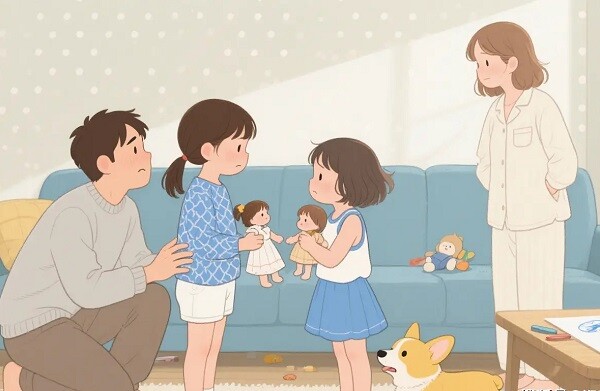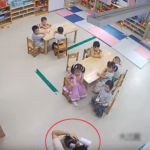On the contrary, distorted expressions of love can have serious consequences for a child’s psychological and emotional development.


Children can sense the harm caused by “love’s labels”
Many parents think that: “I get angry for my child’s own good”. However, what children actually hear is: “You’re making me unhappy.”
When parents approach issues with blame and control, children feel rejected, hurt, and insecure. Instead of feeling loved and supported, they sense criticism and pressure. This unintentionally affects their psychology, creating distance in the parent-child relationship.
Therefore, children need to feel that their parents are on their side, even during difficulties or challenges. Instead of criticizing, encourage them to express their emotions and thoughts.
A more positive approach can help children develop self-confidence and problem-solving skills while strengthening the bond between parents and children. This lays a solid foundation for them to grow into confident and independent individuals.

True love means giving space, not oppression
Sometimes, parents assume that children should be obedient and comply with all rules, but in reality, what children need more is understanding and acceptance. Imposition makes them feel oppressed, leading to negative emotions and a decrease in self-confidence.
For example, a five-year-old girl is at an age where she explores herself, and this is considered an important time for her to have a say in decisions. During this phase, children often want to assert themselves and try to understand the world around them. If parents allow them to make choices, from meals to play, they will feel respected and in control of their lives.
When encouraged to make decisions, children learn to take responsibility for their choices and develop problem-solving skills. Parents can act as guides, helping them find solutions instead of imposing rules.
Moreover, giving children their space helps build a close and trusting relationship. When they feel heard, they are more likely to open up and share their thoughts and worries. This aids in their emotional development, strengthens family bonds, and lays a solid foundation for love and understanding.

Encouraging children to make decisions teaches them to take responsibility for their choices.

Love is a skill to be honed, not just an instinct
Almost everyone thinks that loving children is instinctual. However, a recent psychological study showed that loving children is not just a natural emotion but also a conscious training process.
Just as we need to:
Train ourselves to stay calm: When dealing with stressful situations, maintaining calmness gives us time to think clearly and creates a safe environment for children.
Train ourselves to observe: We need to pay attention to children’s emotions and behaviors to understand their experiences.
Train ourselves not to judge emotionally: Reacting emotionally can lead to wrong decisions. Instead, try to look at issues from different perspectives and respond positively.

Love shouldn’t be a tightrope but a protective umbrella.
In reality, if love doesn’t bring freedom, it becomes control. This is true for the love between parents and children as well; parents should be willing to give children space to explore and grow. Loving doesn’t mean never getting angry or critical, but it does mean being open to honest conversations afterward. This helps children understand that emotions are normal and can be discussed sincerely.
Excessive control, making decisions for them, and unloading our emotions on them are “toxic” elements that, over time, harm their psychology and create distance in the parent-child relationship.
Therefore, love shouldn’t be a tightrope but a protective umbrella, shielding children from life’s storms. Don’t let the rain soak their childhood, and don’t let them be controlled. We must remind ourselves that true love means granting freedom and providing support, not just protection.
The Zodiac Trio: From August 22nd Onwards, Three Lucky Signs Embrace a Debt-Free, Fortunate Life, Abundant in Love and Wealth
After August 22nd, the stars align for certain zodiac signs, bringing a wave of good fortune. It’s a time of liberation, as if the weight of the world has been lifted, and debts are a thing of the past. Get ready for a prosperous period, especially for these three lucky zodiac signs, as they embark on a journey of abundance in both love and wealth.





































